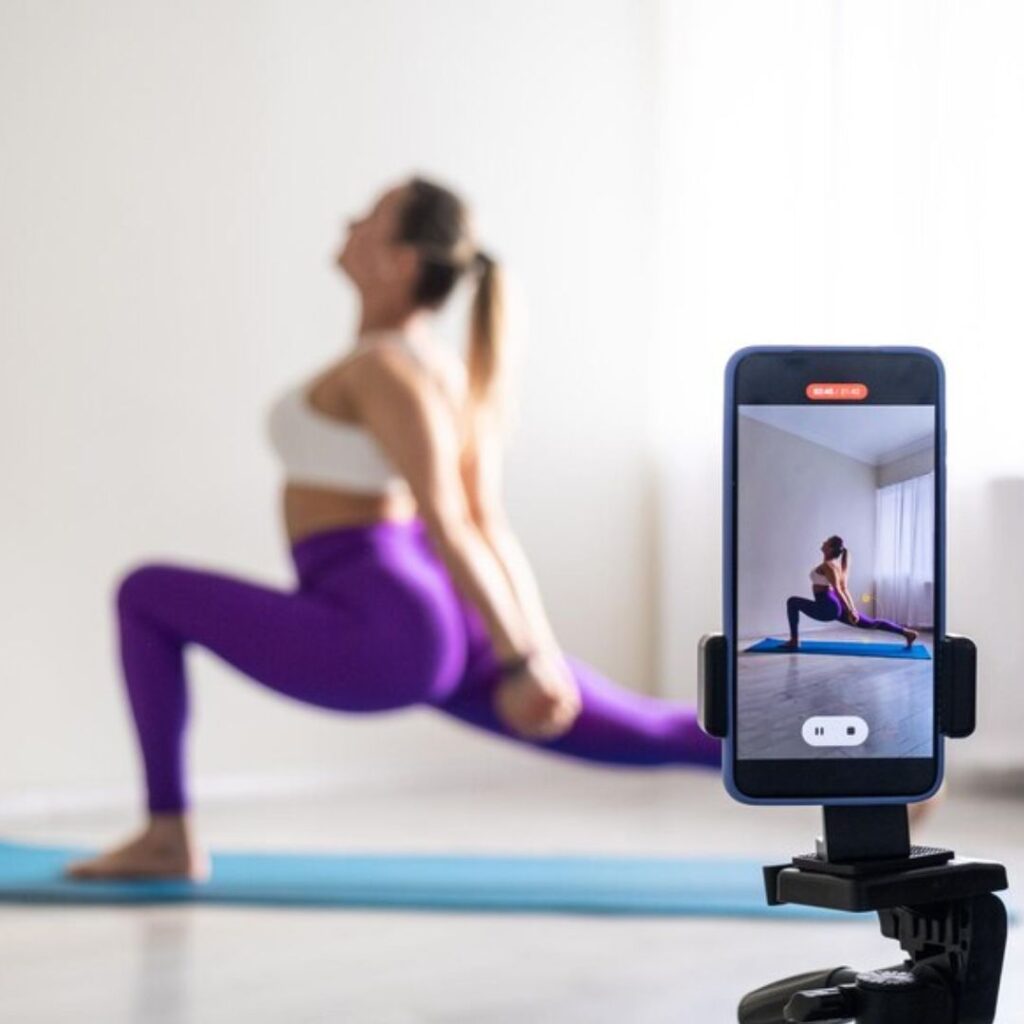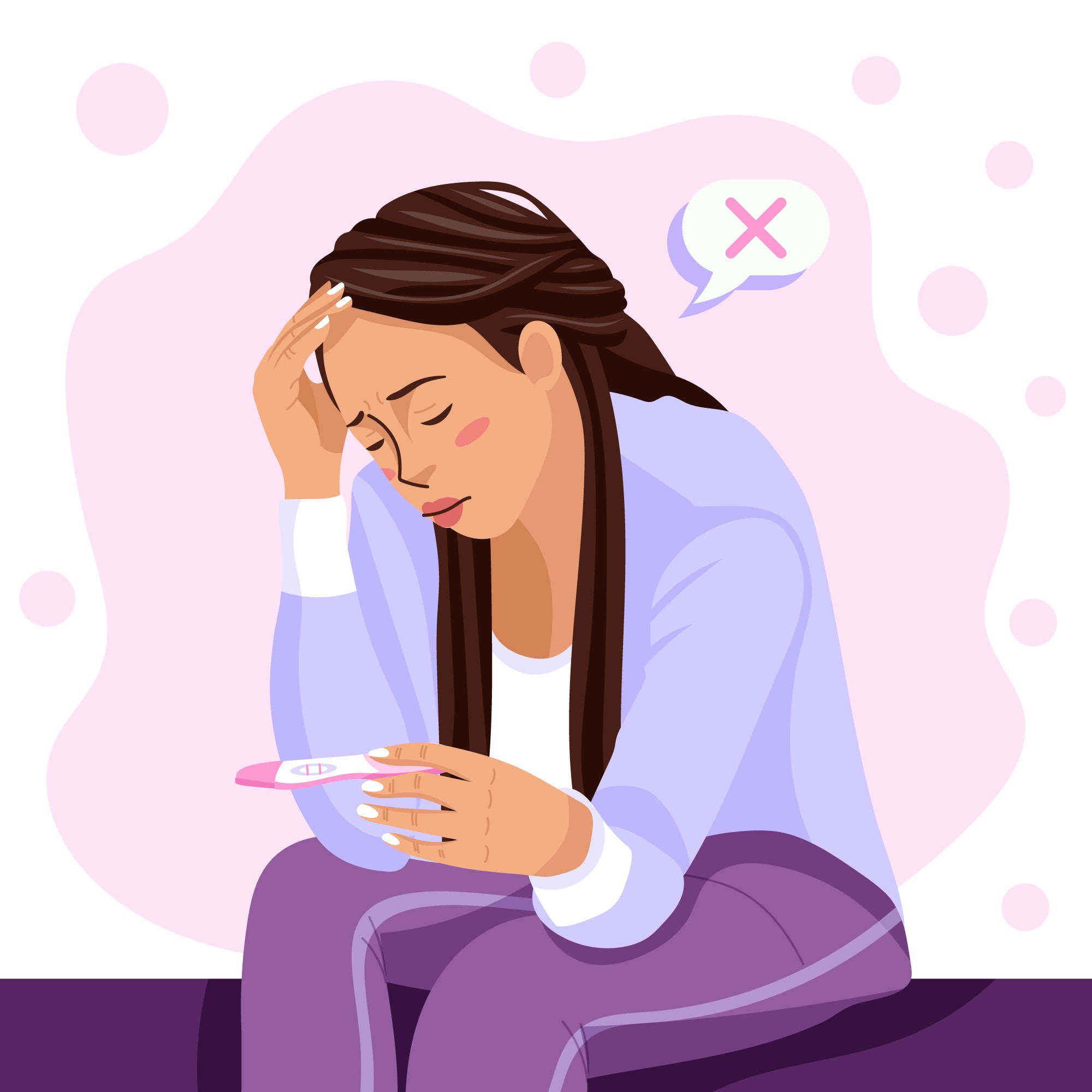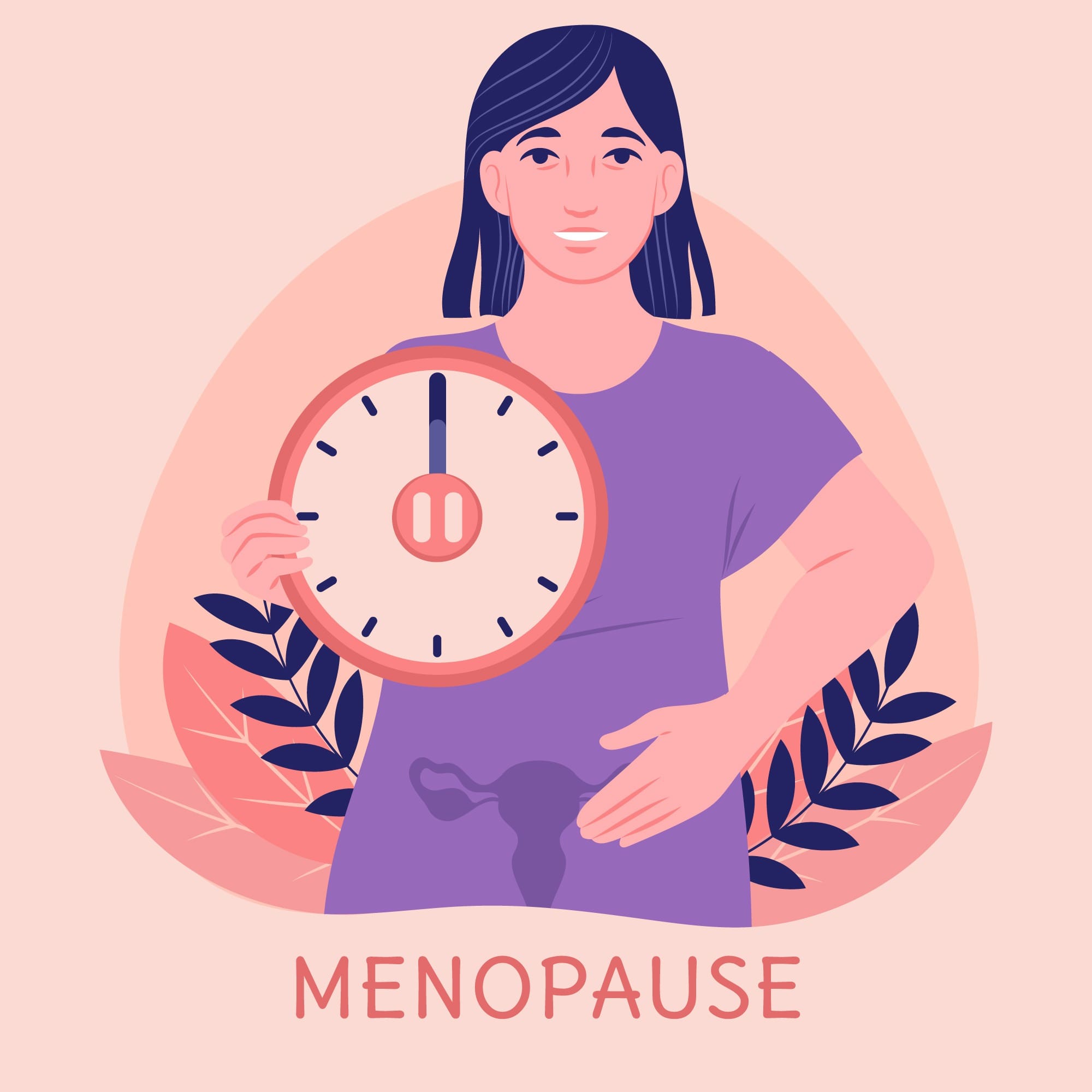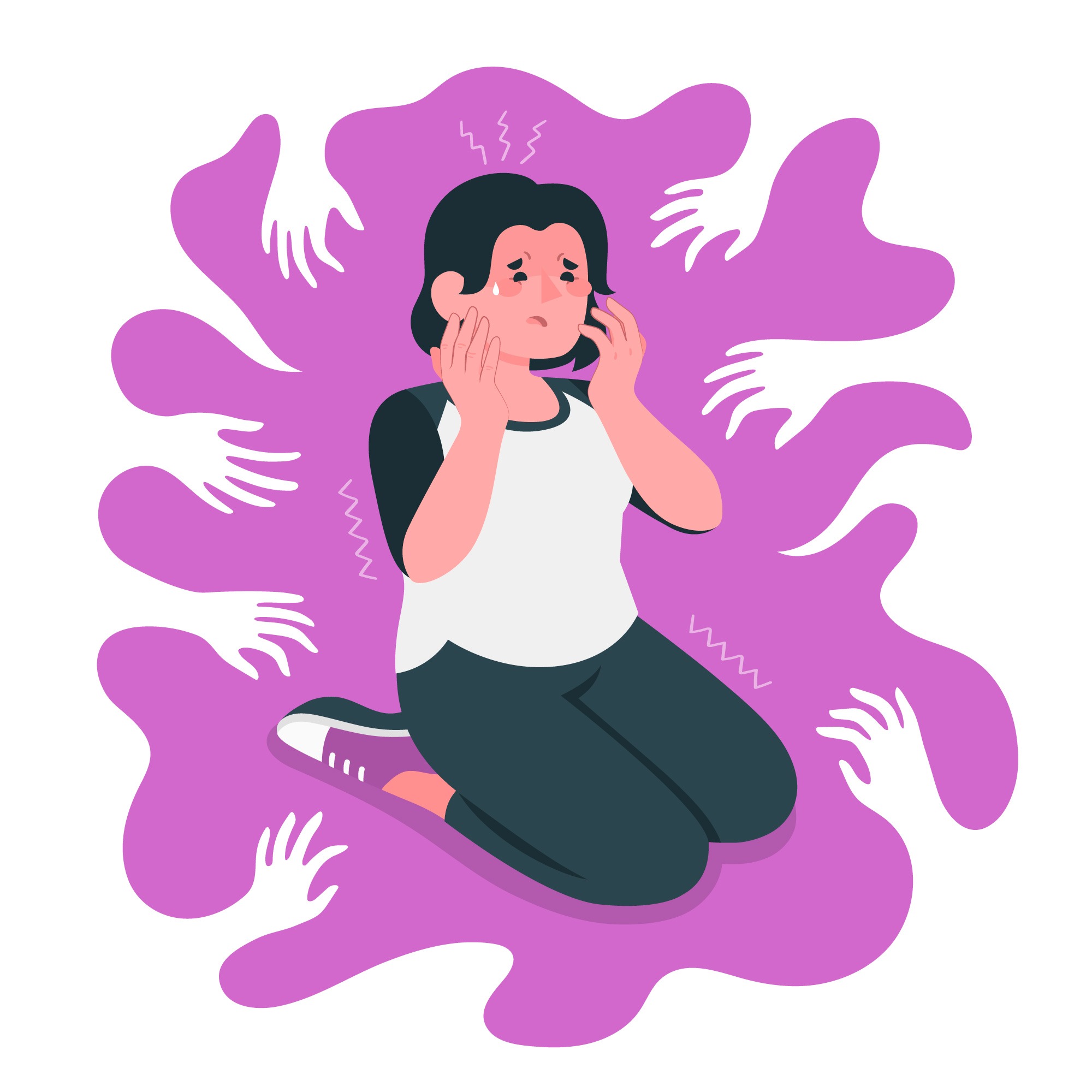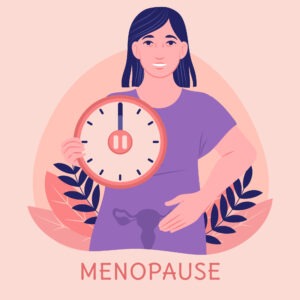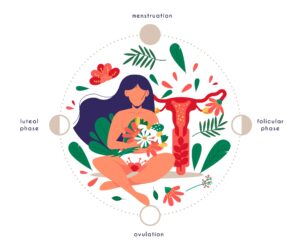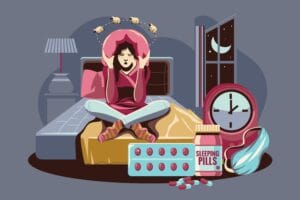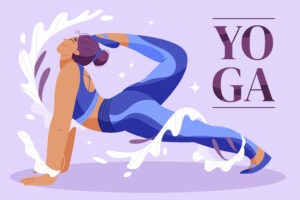How Menopause can be Effectively Managed Get 5...
Read MoreWhat Causes Menopause Fatigue and How to Manage it?
Understanding Menopause Fatigue: More Than Just “Tired”
Menopause isn’t only about the end of monthly cycles. It’s a complex biological transition that often brings fatigue—deep, ongoing tiredness that rest alone doesn’t fix. Hormone shifts (declining oestrogen & progesterone), sleep disruption due to hot flashes and night sweats, metabolic changes, mood swings, and even brain fog all play their roles.
A recent meta-analysis of randomized controlled trials (RCTs) involving perimenopausal and postmenopausal women showed that mind-body exercises (yoga, Pilates, tai chi, qigong etc.) significantly improved sleep quality, anxiety, depression, fatigue, and also enhanced bone mineral density. PMC
So what does this mean practically? If you’re waking up several times in the night, feeling drained, struggling to focus or uplift your mood, these symptoms are not “all in your head”—they are real, measurable changes. However, there is also real hope.
Evidence: How Yoga Helps with Menopause Symptoms
Here are some research findings to show what yoga or Pilates can do:
A 2024 systematic review found that yoga interventions significantly reduce menopausal symptoms, including hot flashes, night sweats, stress & depression, and improve quality of life and sleep. Lippincott Journals
The same meta-analysis (perimenopausal & postmenopausal women) found that mind-body exercise reduces fatigue (standardized mean difference SMD ≈ –0.67) compared to usual lifestyle. PMC
In a pilot RCT of women aged 45-58, those engaging in a yoga class weekly for 10 weeks reported about a 66% reduction in hot flash frequency by week 10, compared to 36% in a wait-list control group. PMC
Another large overview of 80+ studies confirms that yoga and aerobic exercise may benefit women with menopause symptoms, including fatigue. Though more data is needed to distinguish which specific practices help best, the trend is clear. BioMed Central+1
These are powerful because they show that yoga / Pilates are not just feel-good add-ons, but interventions with measurable outcomes.
Why does Menopause Cause Fatigue
Hormonal Changes
Declining Estrogen & Progesterone: Estrogen helps regulate circadian rhythm, neurotransmitters (like serotonin and dopamine), and energy metabolism. Progesterone has a calming, sleep-promoting effect. When both decline, sleep and mood are disrupted. Cortisol Imbalance: Fluctuating estrogen can disturb the HPA axis (hypothalamic-pituitary-adrenal), leading to higher evening cortisol. This interferes with deep sleep and increases daytime fatigue.
Sleep Disturbances
Brain Function and “Menopause Brain”
Metabolic and Physical Changes
Menopause is associated with reduced insulin sensitivity and a natural decline in muscle mass (sarcopenia). Both reduce energy efficiency. Weight gain increases inflammatory cytokines, which are known to cause fatigue and low motivation.
Psychological Factors
How Yoga Work: The Science Behind the Relief
Let’s break down why these practices help with menopause fatigue and related symptoms:
Diet and Nutrition: Your First Line of Defense
Nutrition plays a central role in stabilizing energy and supporting hormonal balance. Here’s how food science can help
Balance Blood Sugar Why it matters
Estrogen decline reduces insulin sensitivity, making blood sugar spikes more likely. Spikes and crashes in glucose drain energy. What to do: Pair carbs with protein and healthy fats to slow glucose absorption. Opt for low-GI carbs (oats, quinoa, lentils, beans, sweet potato) Avoid refined sugar and ultra-processed snacks that cause energy crashes.
Support Iron and Ferritin Why it matters
Anti-inflammatory Foods Why it matters
Protein for Muscle and Energy Why it matters
Menopause accelerates muscle loss, lowering resting metabolism and stamina. What to do: Aim for 1–1.2 g protein/kg body weight daily (beans, lentils, Greek yogurt, tofu, eggs, fish). Spread protein intake evenly across meals, not just dinner.
Hydration and Electrolytes Why it matters
What Kind of Yoga Practices Help Most
When you’re dealing with menopause fatigue, the kind of yoga or Pilates you do matters. Here are what recent studies and expert-recommendations point to:
Gentle / Restorative Yoga & Yin Yoga: slower styles, long holds, lots of stretching and rest. Helpful for stress relief, sleep, calming nervous system.
Moderate Flow Yoga: when energy permits, flows that combine movement and stretching help with stiffness, mood, circulation.
Therapeutic Yoga: tailored classes that incorporate breathing practices (pranayama), relaxation (guided meditation or yoga nidra), postures adjusted for joint sensitivity, energy levels.
Pilates for Core & Strength: moderate resistance or body-weight work helps maintain muscle mass, supports posture, improves metabolic health. Especially useful for physical fatigue and metabolic slowdown.
Hybrid Classes: Some sessions mix yoga + Pilates + breathing + mindfulness, which tend to offer more holistic relief.
Also, consistency is key: most studies showing benefit were over 8-12 weeks or more, with 2-3 classes per week. PMC
Lifestyle Strategies to Beat Menopause Fatigue
Menopause fatigue is a result of hormonal, neurological, metabolic, and psychological changes. By combining a nutrient-dense, anti-inflammatory diet with lifestyle strategies—plus medical support where needed—you can restore energy, protect long-term health, and feel vibrant again.
Exercise Smart
Resistance training maintains muscle and metabolism. Aerobic exercise improves insulin sensitivity and cardiovascular health. Exercise in the morning to reset circadian rhythm.
Optimize Sleep Hygiene
Manage Stress
Medical and Supplemental Support
Practical Tips: How to Use Yoga to Beat Menopause Fatigue
Here are steps you can take, personalized suggestions, that tie into what My Yoga Vibe offers:
Start with a free trial class
Try one live online therapeutic yoga or Pilates class. Notice how your body and mood respond — even small positive changes tell you your body is listening.
Set realistic frequency
Create a bedtime “wind-down” ritual
Mind your nutrition and hydration
Mix movement during the day
Mindfulness & stress management
Why Choose My Yoga Vibe for This Journey
Here’s what makes My Yoga Vibe a strong fit for women going through menopause fatigue:
Live Therapeutic Classes: Classes designed to address your symptoms, not generic fitness routines. Instructors trained to adapt for hot flashes, joint pain, energy fluctuations.
Yoga + Pilates Hybrid Approach: We offer both yoga and Pilates, so you can build strength and flexibility / relaxation. This combo is backed by research for reducing fatigue and improving sleep & mood.
Flexibility & Convenience: Online live classes mean no commuting, no travel, no need to adjust to someone else’s studio environment—they come to your space. You can pause, modify poses, choose how intensely you participate.
Free Trial Class on Signup: So you can experience how beneficial it can feel, without commitment. Try it, see how your body responds, decide if it fits you.
Supportive Community: Feeling alone with menopause symptoms can add burden. Our live classes bring together women in similar stages, so you gain support, encouragement, and shared success stories.
Addressing Common Questions & Concerns (FAQs)
“Will yoga really help my hot flashes or night sweats?”
Yoga tends to help more with sleep, mood, fatigue. If hot flashes are strong, yoga can still be part of a multi-pronged approach along with diet, cooling strategies etc.
“What if I am very low on energy—can I still practice?”
Yes! Gentle or restorative styles, short sessions, chair yoga, gentle breathing are beneficial. Even small mindful movements count.
“Do I need special equipment or experience?”
No. A yoga mat, comfortable clothing, perhaps some props (blocks, bolsters, chair) are sufficient. Our classes guide beginners and adapt for various levels.
“How long before I see results?”
Many studies report meaningful improvements after 8-12 weeks of regular practice (2-3 times/week). You may notice smaller changes (better mood, sleep) sooner.
“Is yoga a substitute for hormone therapy (HRT)?”
Yoga is not a replacement for prescribed medical treatments where indicated. But it is a powerful complementary tool. Always consult your doctor about any severe symptoms.
Stories from Our Community
Don’t just take our word for it—here’s what women like you have shared:
“I was skeptical about online yoga, but My Yoga Vibe changed everything. The classes helped me sleep better and feel less anxious. I actually look forward to my practice now!”
Jyotsana
AGE 50
“Hot flashes were ruling my life until I started yoga with My Yoga Vibe. The breathing techniques and supportive community made me feel so empowered. I’m hooked!”
Vandana
Age 49
“Menopause left me feeling disconnected from my body. These classes reminded me how strong I am. The instructors are so kind—it’s like practicing with friends.”
Kriti
Age 55
Your Plan Forward: Getting Started & Staying Motivated
Here’s a suggested plan customized for you:
Week 1-2: Sign up for My Yoga Vibe’s free trial. Choose 1 yoga class (restorative style) and 1 Pilates class. Notice what feels good, what feels challenging.
Week 3-6: Commit to 2-3 live classes per week. Include restorative yoga (for evenings or low energy days), Pilates or gentle flow on other days. Start keeping a short journal: sleep, mood, energy.
Week 7-12: Evaluate: compare journal for week 1 vs. week 8. Adjust: more rest where needed, possibly include guided meditation classes. As stamina builds, maybe try one class at a time in a more dynamic style if desired.
Motivation tips:
Join with a friend or partner so you have accountability.
Celebrate small wins: one good-night’s sleep, fewer hot flashes, more energy to walk or do something you enjoy.
Use guided breathing or meditation even on non-class days to sustain gains.
Read Our Other Articles
Female Sex Hormones and Yoga: A Holistic Approach
Female Sex Hormones and Yoga A Holistic Approach...
Read MoreWhat Causes Menopause Fatigue and How to Manage it?
Discover how online live therapeutic yoga & Pilates...
Read MoreThe Power of Small Batch ONLINE Yoga Classes : A Worthwhile Investment
The Power of Small Batch Book a Demo...
Read MoreBook Free Demo Class
60 Min Live Interactive Online Class
